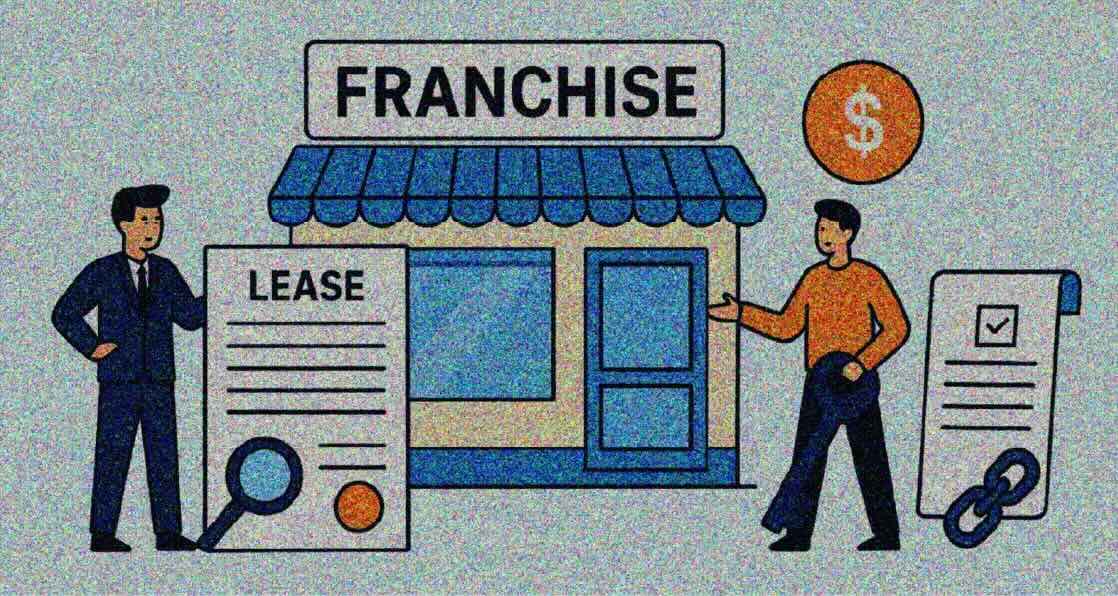Lorem ipsum dolor sit amet, consectetur adipiscing elit. Suspendisse varius enim in eros elementum tristique. Duis cursus, mi quis viverra ornare, eros dolor interdum nulla, ut commodo diam libero vitae erat. Aenean faucibus nibh et justo cursus id rutrum lorem imperdiet. Nunc ut sem vitae risus tristique posuere.
Your Choices About Your Information
First-Time Franchisees
Cost considerations when opening your first franchise unit

Cost considerations when opening your first franchise unit
Embarking on your first franchise venture is both exciting and complex. Franchising offers a proven model and a recognizable brand, but it also requires careful financial planning. Before you sign on the dotted line, it's critical to understand the full scope of expenses that will shape your investment.
Here are the key categories of costs to anticipate:
Franchise Fee
This is the upfront fee paid to gain access to the franchisor's brand, systems, and initial support. It varies widely depending on the franchise and typically includes initial training and operational playbooks.
Real Estate and Location Costs
This includes the purchase or lease of your space, any required deposits, buildout approvals, and utilities. Location is often a cornerstone of success, so these costs can be significant.
Leasehold Improvements
Adapting your leased space to meet franchise specifications can involve construction, HVAC, electrical work, plumbing, flooring, and other permanent installations. Costs depend heavily on the franchise concept and the condition of the space you’re starting with.
Furniture, Fixtures, and Equipment (FF&E)
FF&E refers to the moveable items needed to run your business—things like furniture, kitchen appliances, signage, shelving, and technology systems. These items vary by brand and are often sourced from approved vendors.
Inventory and Supplies
Before launch, you'll need to stock up on the products, ingredients, or materials needed to operate. Some franchisors require inventory to be sourced from approved vendors.
Marketing and Local Promotion
You'll likely need to invest in grand opening marketing, digital ads, and community outreach. While national marketing may be covered by a fund, local efforts often fall on the operator.
Training and Travel
Training is often included in the franchise fee, but travel and lodging to training locations, as well as follow-up support, may not be.
Ongoing Fees and Royalties
Most franchises require royalty payments and contributions to a brand fund. Be sure to calculate how these affect your long-term profitability.
Insurance, Permits, and Licensing
You'll need various local permits and business licenses, as well as insurance to protect your assets and meet franchise requirements.
Daily Operational Costs
From labor to maintenance and supplies, day-to-day costs quickly add up. Have a clear plan to manage cash flow from day one.
Contingency Reserve
Always build in a cushion for unexpected costs—delays, staff shortages, or equipment issues can arise.
"We often see new franchisees underestimating the capital they need for post-opening operations. The grand opening is only the beginning," says Travis Perrine, Director Business Development at ApplePie Capital.
"The franchise fee is just the ticket to the game. Real financial planning begins after that," Travis adds.
For more insight into franchise financing options, including tailored franchise lending or SBA loans, visit ApplePie's Franchise Forum.



RELATED POSTS
Navigate challenges with ease









